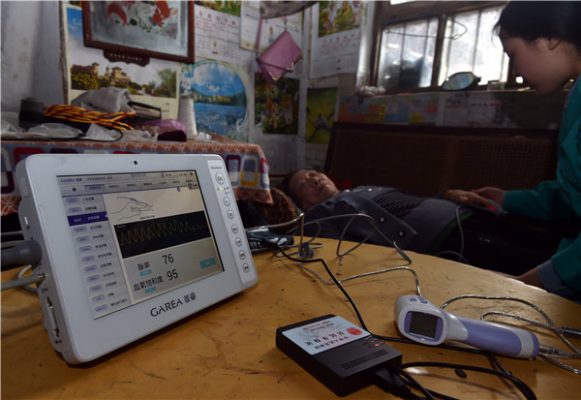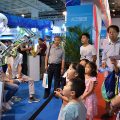ZHENGZHOU – Suffering from coronary heart disease, 79-year-old Wang Funi was amazed to find out that she can have routine medical tests done at her rural home.
/
In the past, it would take 50 minutes to travel by electric tricycle to visit the nearest county hospital, and her husband or children would have to take a break from work on the farm to accompany her.
“It’s time-consuming. Now there’s no need for the trip. All the basic tests can be done free at home,” she said.
With the help of a new portable all-in-one diagnostic device, Zhang Xiaozhan, a doctor in Erpuying village, Henan province, where Wang lives, conducted eight tests on her in about 20 minutes, ranging from measuring the electrical activity of her heart to checking her blood pressure.
“The device offers the biggest benefits for the elderly and patients with chronic diseases, reducing their need to travel long distances to hospitals and wait in long lines,” Zhang said.
At the start of this year, the city of Jiaozuo purchased around 600 all-in-one diagnostic devices and offered them to teams of local family doctors.
Weighing just five kilograms, one of the devices can run multiple routine tests, from measuring blood pressure to urine and blood analysis.
Li Zhenhui, sales manager at mobile healthcare company Garea, which provided the devices, said that the machines can do more tests if auxiliary medical equipment is connected. The company usually sends experts to train village doctors.
Test results are stored as electronic files on the city’s family doctor service platform as a reference for further diagnosis and treatment.
Wang’s team of doctors has six members. Liu Yingying, a general practitioner at the health center in Jiayingguan township, is one of them.
Liu said the team has signed contracts with more than 4,000 local residents, including a priority group of more than 500 patients.
“Some have chronic diseases, while others are rehabilitating and need special attention,” Liu said. The team needs to visit each patient in the priority group at least four times a year.
“It’s a formidable task. The all-in-one diagnostic device can improve the quality and efficiency of our service,” Liu said.
Tian Qingfeng, a health management researcher at Zhengzhou University, said there is an uneven distribution of healthcare resources in China, with advanced diagnostic and treatment equipment, and the best doctors, concentrated in big cities.
“Technology can improve rural access to quality healthcare,” Tian said.


